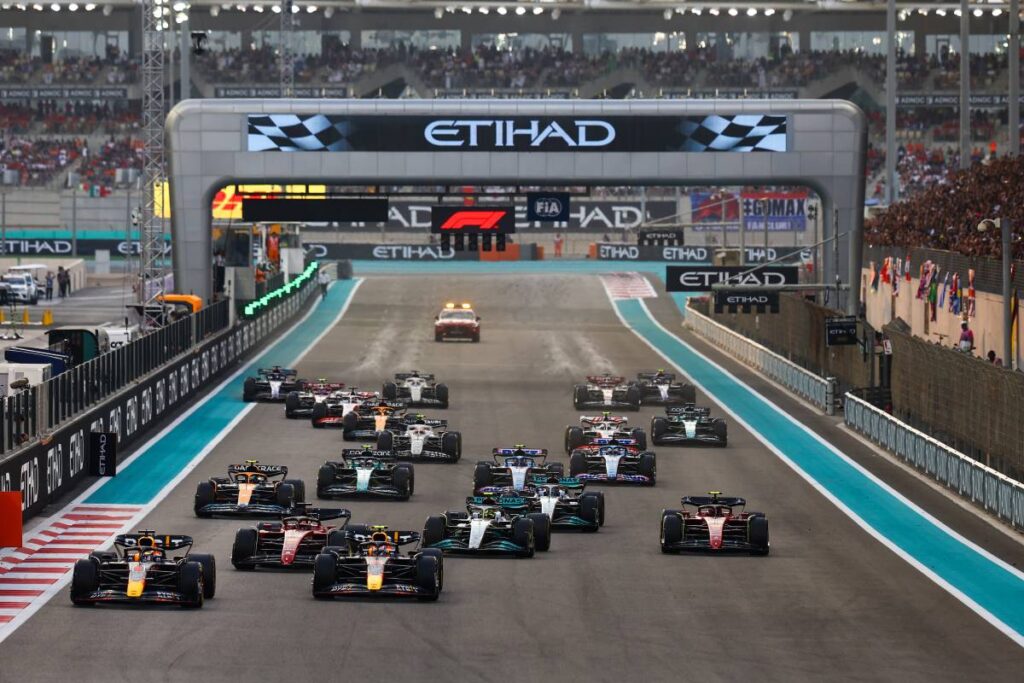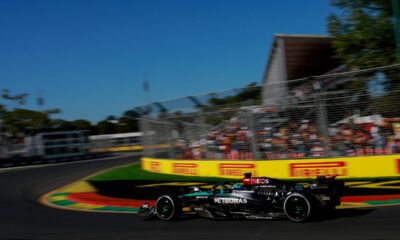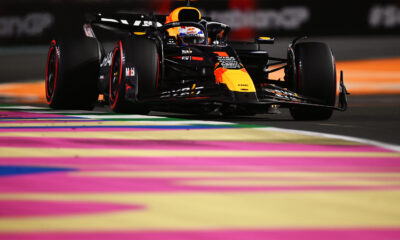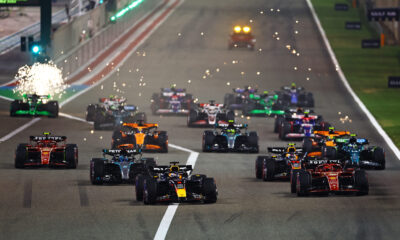Motorsport
New Formula 1 rules deepen the rift between teams and the FIA
In the ever-evolving world of Formula 1, new seasons usually bring new rules. And 2024 will be no exception. However, there will be no change to the rules regarding the construction of the monoposts. But the news may still change the way teams think.

In the ever-evolving world of Formula 1, new seasons usually bring new rules. And 2024 will be no exception. However, there will be no change to the rules regarding the construction of the monoposts. But the news could still change the way teams think.
The 2024 season will kick off on 21 February with the traditional pre-season testing in Bahrain. Normally, many fans don’t watch pre-season testing because teams don’t show the new monoposts in their full glory and the results are often very misleading. It is certainly not the case that the team with the fastest car in pre-season testing will be the fastest in the season.
This is evidenced by Mercedes’ earlier repeated poor results in Bahrain and its subsequent dominance throughout the season. This season, however, a number of teams have stated that they will bring completely new cars to the start of the 2024 season, despite the technical regulations regarding the monoblocs and their form remaining the same. This includes big teams such as Mercedes and Ferrari.
It will certainly be interesting to see what they prepare in their attempt to dethrone the reigning Red Bull and Max Verstappen.
There have been four instances in 2023 where teams have exercised their right to review a particular fact after a race in an attempt to get the result changed due to what they considered to be race management errors. The only successful petition for a review was one by the Aston Martin stable.
At the Saudi Arabian Grand Prix, Fernando Alonso briefly led in the opening laps but soon received a five-second penalty for a botched start. The double world champion then also subsequently received a ten-second penalty for incorrectly serving the first five-second penalty, which put Mercedes’ George Russell into third place.
The ten-second penalty was given to Alonso for touching the rear jack used to lift the monopost to change tyres with the monopost before the five-second penalty expired. The stewards felt that the penalty had not been served correctly. However, the Federation Internationale de l’Automobile (FIA) reversed its decision after the race following a petition for review.
The Ferrari stable tried to overturn the five-second penalty its driver Carlos Sainz earned at the Australian Grand Prix after the Spanish driver collided with Fernando Alonso, but the effort was in vain. McLaren’s attempt to overturn Norris’s penalty in Austria and Haas’ attempt to change the running order due to track restrictions after the United States Grand Prix were also rejected.
The new rules in Formula 1
The 2023 rules allowed teams to submit a request for a review within 14 days of the end of the race. That period will now be reduced to 96 hours, with stewards able to extend the deadline by 24 hours in cases where the request cannot be submitted within 96 hours of the end of the race.
There will also now be a fee for submitting a request for review, which will be forfeited if the review is unsuccessful. The amount of the fee will be set annually and the fee will only be refunded to the team if the review is successful and if the refund is fair given the circumstances.
It is understandable that the FIA does not want the results of races to be changed two weeks in arrears, i.e. after the next race weekend. The introduction of a system of advances, i.e. fees to use the right of review, is then probably intended to discourage teams from reviewing trivial and marginal situations. After all, a similar advance fee system is used in cricket, for example.
The question about the new rules is whether the advance fee, if forfeited, will fall within the budget limit that teams cannot exceed during the season. If not, then this rule will make essentially no difference as F1 teams have money available outside the budget cap. However, if they do, teams will have to weigh very carefully indeed which situations to save and which to bite the bullet and leave alone.
That’s not the end of the rule changes. Up until now, the FIA has had the right to visit teams’ factories to check what’s going on and make sure the rules are being followed. These inspections were always preceded by a written notice, which gave teams plenty of time to hide anything potentially unfair.
The new plan is that the FIA should not be forced to wait too long outside the teams’ factory for an inspection. This should take place within minutes of a team being notified of a request for an inspection. The FIA has recently expanded the number of staff available to help with such work at the factory and believes that it is now at a level where such checks could take place more frequently.
There is an incredibly large amount of money swirling around in the world of Formula 1, and so from time to time it happens that a team breaks the rules when building a monoposto. While the new flash inspections will not prevent teams from acting in breach of the rules, they could be reduced as teams start to fear that they may be caught out by an inspection. However, this possibility will undoubtedly lead to an even greater rift between the teams and the International Automobile Federation.
Source: FIA, Motorsport, F1 Insider, F1

-
Motorsport4 days ago
Jorge Martín is rewriting history! the 26-year-old Spaniard became the new MotoGP World Champion, Bagnaia succumbed despite his best efforts
-
Motorsport5 days ago
Bagnaia keeps hopes of a miracle alive with MotoGP sprint win in Barcelona, third-placed Martín one step away from title















